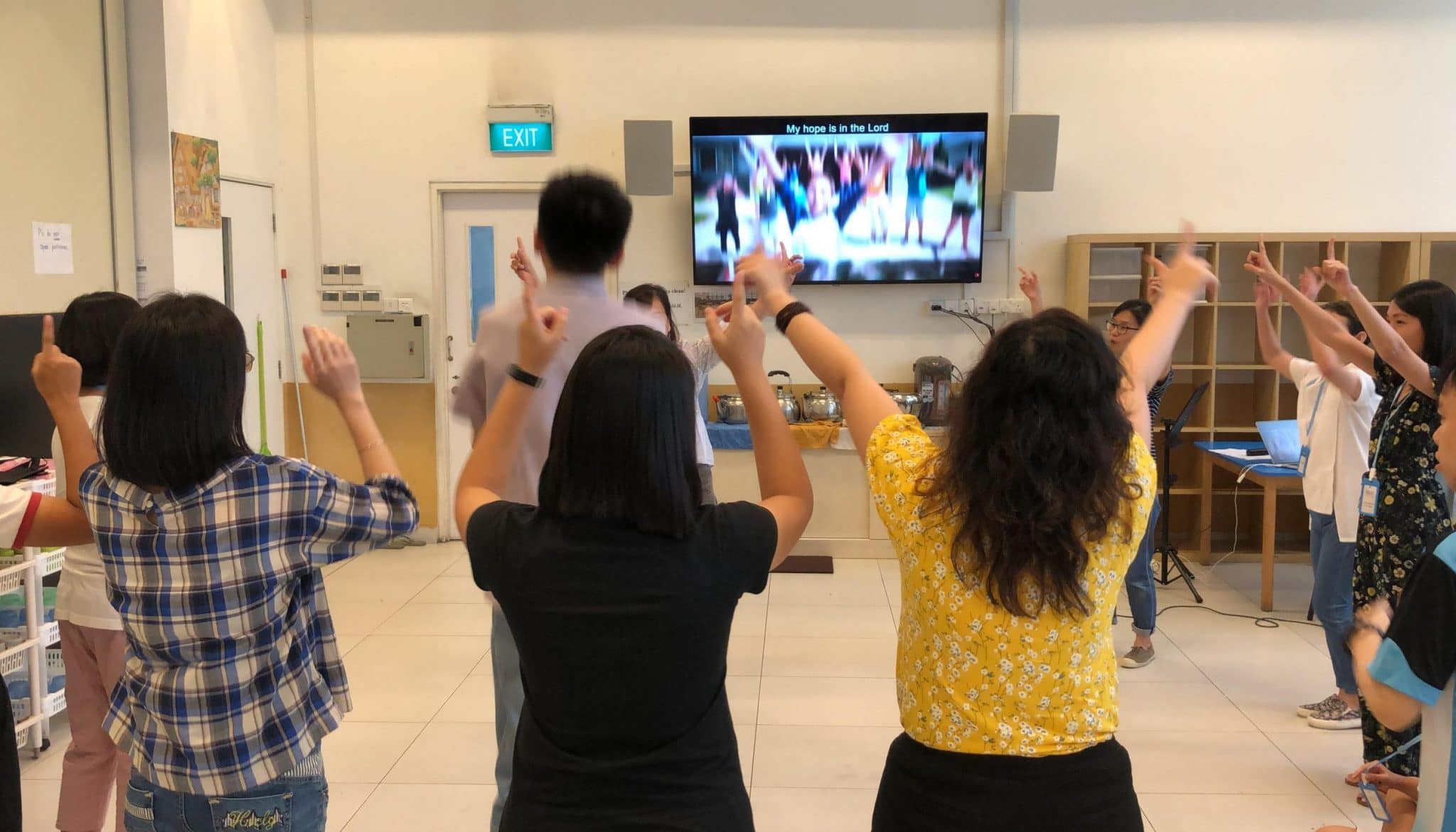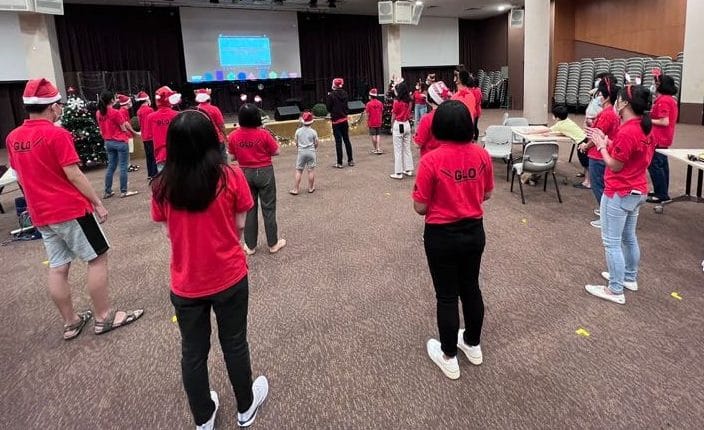4 lessons I’ve learnt caring for special needs Friends and families
Pastor Jeffrey Aw, Bethesda (Bedok-Tampines) Church // January 25, 2022, 2:45 pm

"The comfort of a loving community reminds them that they’re not alone in the journey" writes the author, the Pastor-in-charge of the ministry for special needs Friends at his church. Photo by by Rod Long on Unsplash.
They are a community that often eludes our attention. Many are so overwhelmed with even basic daily tasks that they rarely get to interact with the world. Many are so used to negative attention – stares and grumbling – that they prefer to attract no attention at all.
Yet families with members with special needs are a segment of society that arguably need more of our attention – not less.
This issue will not go away anytime soon. According to the SPD, which serves people with disabilities, 4,000 children are diagnosed with special developmental needs every year – and this number is likely to go up. The Ministry of Education estimates that 2.1% of the total student population has a disability.
The tragic headlines from Greenridge Crescent have broken many hearts. Is there more the Church can do to help?
Behind every statistic is a child and a family on a difficult – usually lifelong – journey. Those of us who have interacted with families with special needs will know the path they walk is a long and arduous one, with many tears, frustrations, anger and often guilt.
In 2019, stirred by Matthew 9:36 – “When Jesus saw the crowds, He had compassion for them, because they were harassed and helpless, like sheep without a shepherd” – we decided we as a church could no longer ignore the issue. We would instead try to compassionately reach out to children with special needs.
Rather than resort to loaded labels, we call them “Friends”.
The tragic headlines from Greenridge Crescent this past week have broken many hearts. The statistics show there are so many more families in a similar situation. Is there more the Church at large can do to help?
For those who have been stirred to look into how you or your faith community can do to help, here are four lessons we’ve learnt on how a church can provide meaningful help to such families.
Lesson #1: It’s not just about the children, but the family, too
One of the first lessons we learnt was that it isn’t enough to just think about it as a ministry serving children – it requires a holistic approach. Any special needs ministry requires a two-fold approach, serving and supporting our Friends with special needs and their families.
This means that whenever a new Friend joins us, we befriend their whole family. We celebrate their successes and also shoulder their burdens with them.

A service for children with special needs includes worship, sharing, discussion, fun and games. All photos courtesy of GLO (God’s Love Overcomes) unless otherwise stated.
We try to make home visits (safety guidelines permitting) where we interact with our Friends and their parents/caregivers in a familiar environment. Before the pandemic, we had monthly meet-ups with all the parents, where we got to hear them share their struggles, and pray and journey with them.
The aim of these efforts is to establish relationships and to see if there’s any support they need.
We also have a parents’ support WhatsApp chat, where parents can exchange notes. We discovered that for many of them, this is a lonely journey, and they appreciate receiving encouragement, gentle words and prayers.
The aim of all these efforts is to establish relationships and to assess the needs of the Friends and their families, to see if there’s any support they need.
We’ve also found that having their children being taken off for the duration of our special needs service is welcome respite for many parents. The two hours they spend in church serve as a breather for caregivers who may not have any breaks looking after their children all week.
Lesson #2: It’s not just about the holy stuff, but the practical things, too
We found that parents appreciate us engaging their children holistically – not just teaching them about the faith, but even practical everyday lessons.
With the trust that is forged, we’ve seen some Friends come out of their shell.
So we practice “holistic discipleship” with our Friends, where apart from teaching them to read the Bible and pray every day, we also impart life skills. For example, we teach them about time management; encourage them to take care of their well-being through exercise; and guide them on how to regulate their emotions.
One volunteer in my team has was led to go beyond going through Bible lessons with our Friends. Seeing the need, she conducts math tuition for them, too.
With the relationships that are formed, and the trust that is forged, we’ve seen some Friends come out of their shell. Some who used to be reluctant in joining in for worship have started to join in the dance actions during worship.
Lesson #3: It’s not just about what goes on in church, but in their homes, too
The Covid-19 pandemic has made engagement more difficult for everyone, but especially so for those with special needs, who sometimes take longer to adapt to different schedules and new technology.
We’ve learnt that the only solution to this is real intentionality; time and effort to stay connected with our Friends and their families via WhatsApp and Zoom. Some volunteers have started to read the Bible and minister to our Friends online, praying and worshipping together with them over Zoom.
Volunteers have been teaching K to verbalise … K has responded, trying to articulate the words.
But one benefit of the pandemic is that we’ve been able to minister to people beyond local borders, with our services catered to special needs Friends made available online.
A volunteer regularly sends our online services to her friend in Sabah, East Malaysia, who has a nephew, K, who faces various health conditions. The volunteer even calls to sing Christian songs to K twice a week – at least half an hour each call – which has a calming effect on him.
Of late, the volunteer and her friend have been teaching K to verbalise: “Thank you Jesus. Jesus loves me. I love Jesus.”
K has responded by making sounds, trying to articulate the words. We believe he has been saved in Jesus’ name – and thanks to the volunteer’s efforts to engage this precious child.
Lesson #4: It’s not just the work of a pastor, but the whole community, too
One of the cell groups in my church decided to befriend one family whose children attend the special needs service. They entered into this with the aim of being a community of support for the family, through regular interactions where they provide a listening ear, encouragement and prayer.

A Christmas service for Friends at Bethesda (Bedok-Tampines) Church.
They do this in the hope that the family will experience the tangible love of God through the fellowship of this community.
Recently, the family sent them a message, thanking them for their love. “These friendships are the encouragement we all need when times are tough,” the family said.
Many such families struggle in silence and in isolation. The comfort of a loving community is, for many of them, literally a God-send. It reminds them that they’re not alone in the journey – and that there is a community that doesn’t ostracise them for their situation, but embraces them for it.
Help and hope
We may not yet know all the facts, nor should we speculate, about what happened at Greenridge Crescent. But what I have learnt is this: There are so many more families in a similar situation.
“These friendships are the encouragement we all need when times are tough.”
At the end of the day, it’s all about giving help and hope to a segment of people who are often exhausted and overlooked.
We have the perfect example of loving that goes the extra mile – Jesus coming from heaven to Earth, then dying on the Cross for us. Now we, as the Church, need to follow that example.
We have experienced the unceasing love of God and the joy of being in the community of faith. Now we, as the Church, need to ensure that community is inclusive for all, including those with special needs.
RELATED STORIES:
The heartbreaking truth about the emotional state of our youths – and how we can pray for them
How do Sunday Schools meaningfully include children with special needs?
How do we enable differently abled persons to be full participants in the community of faith?
We are an independent, non-profit organisation that relies on the generosity of our readers, such as yourself, to continue serving the kingdom. Every dollar donated goes directly back into our editorial coverage.
Would you consider partnering with us in our kingdom work by supporting us financially, either as a one-off donation, or a recurring pledge?
Support Salt&Light




